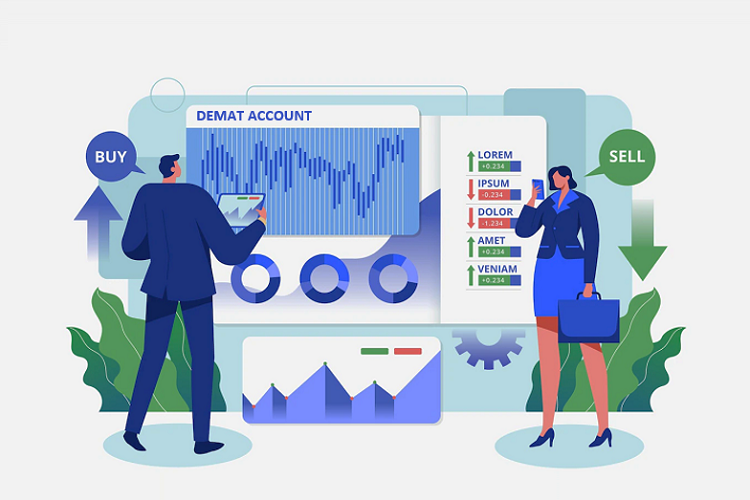A Demat account, or dematerialized account, is a type of account that holds securities in electronic form. This means that instead of having physical share certificates, your shares are held digitally in the depository. The depository is a central securities depository (CSD) that holds the electronic records of all the shares in India. When you buy shares, the shares are dematerialized and transferred to your demat account. When you sell shares, the stakes are dematerialized and moved to the buyer’s demat account.
Demat accounts were introduced in India in 1996 to streamline the process of trading in shares. Before submitting demat accounts, investors had to hold physical share certificates. This was a cumbersome process, requiring investors to store the credentials safely and transfer them to buyers when they sold their shares. Check more on zero brokerage charges.
Demat accounts have made the process of trading shares much easier and more efficient. Investors no longer have to worry about storing physical share certificates, and they can transfer shares electronically with a few clicks of a button.
There are several benefits to having a demat account. These include:
- Convenience: Demat accounts make it easy to buy and sell shares. You can do this online or through your broker.
- Security: Demat accounts are held in a secure environment by the depository. This means that your shares are protected from theft and loss.
- Liquidity: Demat accounts make it easier to sell your shares. You can do this quickly and easily through your broker.
- Cost-effectiveness: Demat accounts are relatively inexpensive to open and maintain.
If you are considering investing in shares, a Demat account is a must-have. It will make the process of trading in shares much easier and more efficient. Check more on zero brokerage charges.
Here are some of the steps involved in opening a demat account:
- Choose a depository: India has two depositories: the National Securities Depository Limited (NSDL) and the Central Depository Services Limited (CDSL).
- Choose a broker: You will need to open a trading account with a broker in order to buy and sell shares.
- Submit the required documents: You must submit some essential documents to open a demat account, such as your PAN card, Aadhaar card, and proof of address.
- Pay the fees: There are some fees associated with opening a demat account, such as a registration fee and a maintenance fee. Check more on zero brokerage charges.
You can start buying and selling shares once you have opened a demat account. To buy shares, you must place an order with your broker. When you sell shares, your broker will sell them on your behalf, and the proceeds will be credited to your demat account.
It is important to note some risks associated with demat accounts. These include:
- Cybersecurity risks: Demat accounts are held in a digital format, which makes them vulnerable to cyberattacks.
- Market risks: The value of shares can go up and down, so you could lose money if you sell your shares at a loss.
- Liquidity risks: It may be challenging to sell your shares if there is no liquidity in the market.
Overall, demat accounts offer several benefits for investors. However, knowing the risks involved before opening a demat account is essential.





